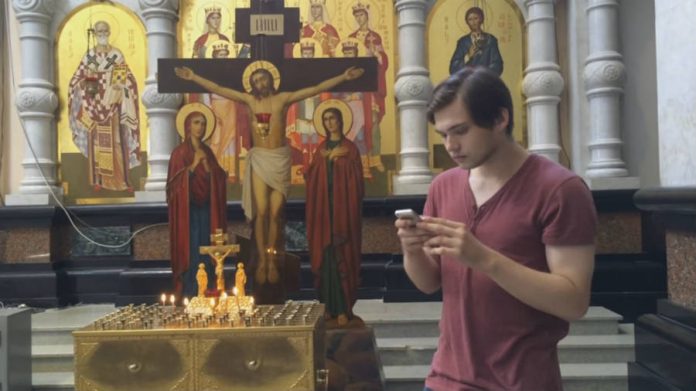
On Thursday, a Russian court ruled that Ruslan Sokolovsky, a local YouTuber and blogger, would serve a suspended sentence of three and a half years in jail for playing Pokémon GO in an Orthodox church.
Prosecutors cited “religious hatred,” “illegal trafficking,” and more crimes that attempted against the morals of the church, according to case verdicts. The 22-year-old was captured in October last year after filming himself playing the AR mobile game in the church last August.
The Sokolovsky case has sparked international controversy both for the absurdity of the implications and the role of technology in the whole ordeal.
This is why you don’t goof around churches in Russia
https://www.youtube.com/watch?v=PfMn1yahGYk
Last summer, Russian government authorities warned game lovers about playing apps like Pokemon Go inside churches and religious temples because doing this could disturb the peace of those going to worship and it was a disrespectful act.
In response to this, Sokolovsky set out to catch some Pokemon in his native Yekaterinburg, a city east of Moscow. There, he entered the Church of All Saints, a local Orthodox temple known for being the place where Tsar Nicholas II and his family were killed.
The YouTuber recorded the whole thing, including himself in the outskirts of the church, entering it, and catching Pokemon near the altar where a priest sang preached and sang along with those in attendance.
The video ended with him again outside of the temple, saying there was no trouble at all and that there was nothing to be worried about. He even implied the supposed new laws were like Jesus in his perspective, meaning that they didn’t exist.
No rule is useless when there is someone to enforce it
He posted the controversial footage in August, and since then it has gathered nearly 2 million views on YouTube. Two months later, he was awoken by police forces raiding his home and putting him under provisional house arrest while he waited for trial in a local court.
Ruslan Sokolovsky could have faced up to five years in prison under Russian law, which considers his actions as crimes ranging from “inciting religious hatred” and “insulting religious believers” to “illegal trafficking of special technical equipment” after authorities found a camera pen at his apartment.
Lawyers for the defendant believe that world attention helped the blogger leave with only a suspended sentence, and that, had the international community not been looking, he could have gotten much more time in prison.
Not all dissenting figures in Russia have had the same luck as Sokolovsky. The case instantly reminded the public eye of the country’s persecution and locking of two members of the punk band Pussy Riot in 2012. The musicians are still imprisoned today.
Source: BBC










